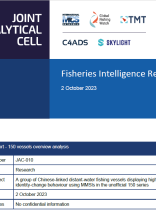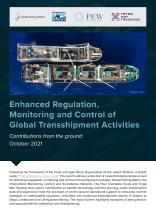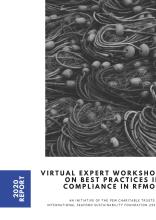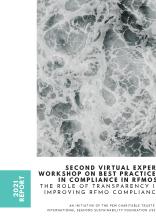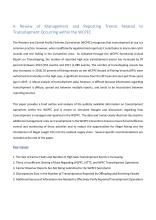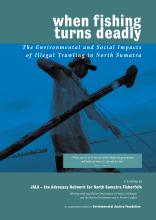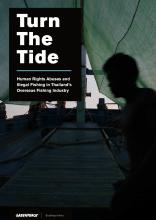JAC Intel Report 010 - 150 vessels overview analysis
A group of Chinese-linked distant-water squid fishing vessels have been identified regularly transmitting over MMSIs in the 150 series (not assigned to any country) and engaging in complex behaviour involving regular name changes over AIS, sharing of names and MMSIs between vessels and transmission of multiple MMSIs from individual vessels. Whilst this behaviour alone does not constitute IUU, it does make it extremely challenging to monitor the number of individual vessels and the activities of these vessels using AIS and confirm their identities - a matter of concern for RFMOs, coastal States and port States that the vessels interact with during their operations. The Joint Analytical Cell (JAC) consulted with China on the issues identified in the report and the results of this informative dialogue are captured in the final report.
